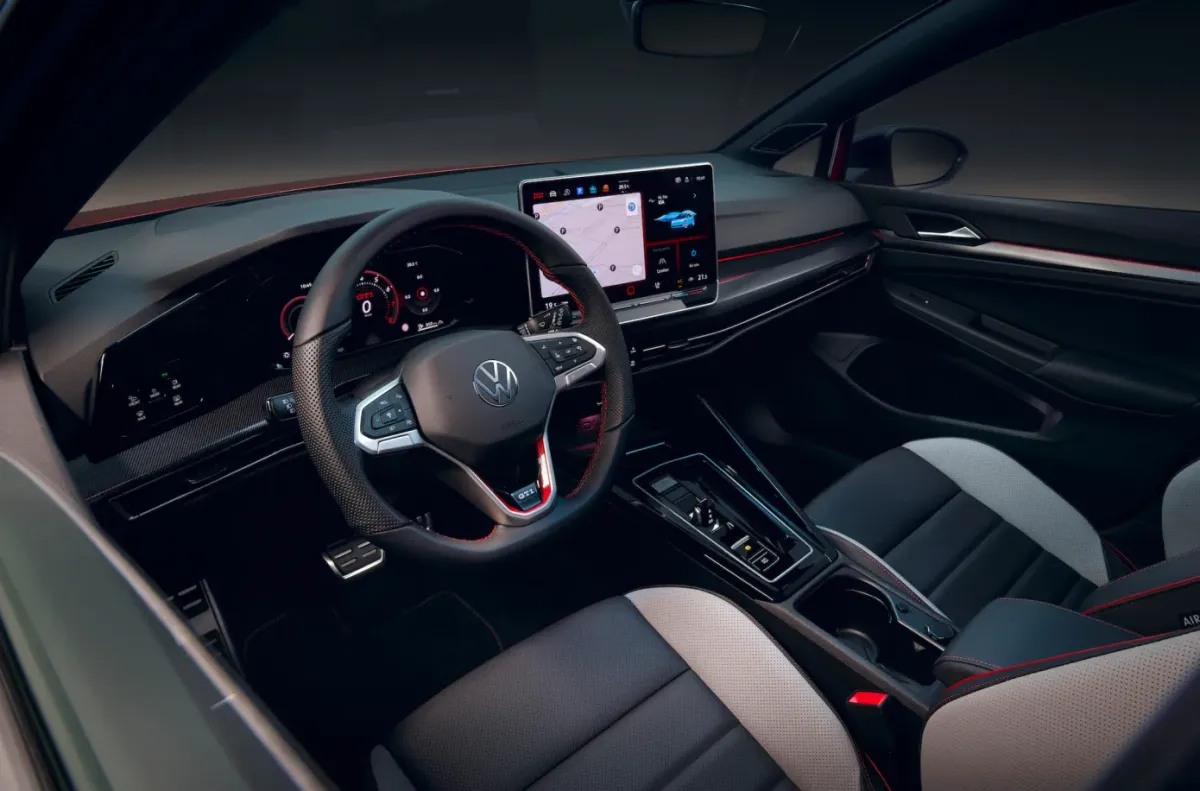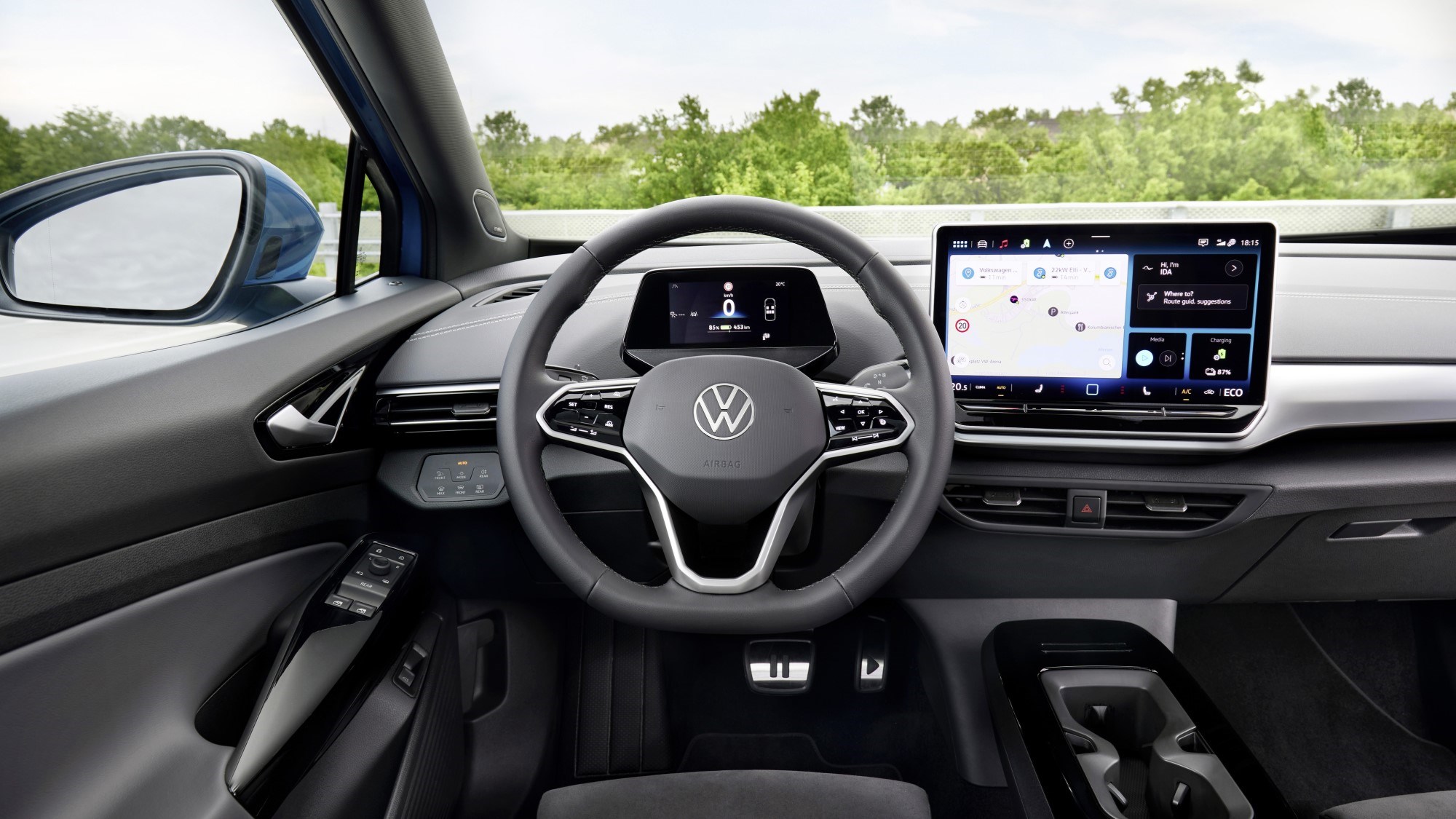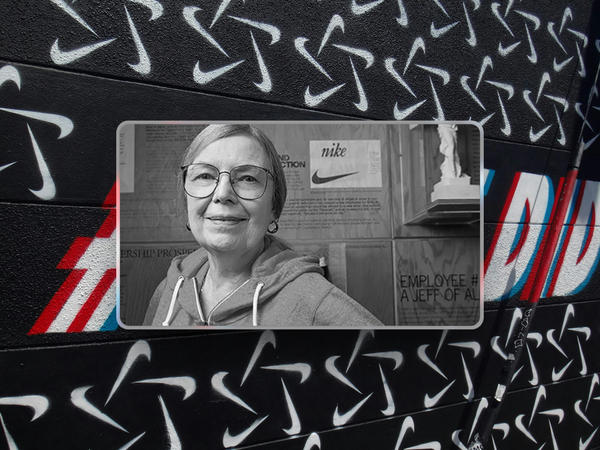Navigating the Road of Distraction: Volkswagen's ChatGPT Integration in Cars
Our incessant need to be productive will be the death of us

We're at a point where businesses outside the tech sector are adopting ChatGPT to distinguish their offerings. With everyone eager to grab a slice of the AI market, VW is the latest to enter the foray.
"Volkswagen is getting into the ChatGPT game. The German automaker announced Monday at CES 2024 in Las Vegas plans to add an AI-powered chatbot into all Volkswagen models equipped with its IDA voice assistant." - techcrunch.com
Now, I'll be the first to tell you that I've gained a bit of a reputation for my scepticism regarding car tech.
Whether it's poor design in general or cabins without buttons, the introduction of specific technologies doesn't always enhance the safety of the driving experience.
While I'm a car enthusiast who relishes the scent of car fumes, I support the shift to electric vehicles, though the incessant need for connectivity and superfluous gadgetry raises concerns.
A digital pacifier of sorts, as presumably, we can't be trusted to drive with just our thoughts or listen to our favourite tunes.
So, am I sceptical of Volkswagen's introduction of ChatGPT into models equipped with voice assistant?
Well, sort of.
While this type of technology is less intrusive than say, using a touch screen while driving, it still poses a risk to driver and pedestrian safety.
Advantages: Enhancing the Driving Experience

Okay, let's look at the advantages first.
Volkswagen's move to introduce ChatGPT to cars is undoubtedly driven by the desire to enhance the driving experience.
Or, at least, VW's understanding of enhancing the driving experience. VW rattled off a list of potential examples including, "enriching conversations, clearing up questions, interacting in intuitive language, receiving vehicle-specific information, and much more — purely hands-free."
Something you might have more familiarity with if sat at a computer or on your phone, and less in your car.
Why sit in silence or bother listening to everyone's favourite conspirator uncle, Joe Rogan, whenever you can play 20 questions with a virtual assistant?
The idea of having a virtual assistant readily available while driving – ready to answer questions, offer information, and even engage in casual conversation – sounds quite appealing.
Why sit in silence or bother listening to everyone's favourite conspirator uncle, Joe Rogan, whenever you can play 20 questions with a virtual assistant?
VW might be keen to promote this integration as a "welcome companion" for long journeys, offering entertainment and reducing the sense of isolation during solo drives.
Moreover, the integration could lead to, shudder, improved in-car productivity.
You could dictate messages, set reminders, or compose emails hands-free, because let's face it, your productivity is a hot commodity, and companies are eager to maximise it in the pursuit of capitalism.
This hands-free capability potentially aligns with the ongoing efforts to make driving safer by minimising distractions and keeping the driver's hands on the wheel.
Concerns: Distracted Driving on the Rise

Despite the potential advantages, a cynical perspective highlights the growing concern about distracted driving.
In an era where smartphones contribute significantly to this issue, introducing ChatGPT into cars might exacerbate the problem. The allure of engaging in conversations with a virtual assistant could divert a driver's attention away from the road.
It's just a known fact that humans have a ceiling when it comes to multi-tasking, and driving a vehicle while cognitively engaging in other tasks leads to a higher potential of the shit hitting the fan.
Studies have consistently shown that multitasking while driving, even seemingly harmless activities like talking on the phone, can impair reaction times and increase the risk of accidents.
The integration of ChatGPT raises questions about whether it might contribute to this trend, as drivers may become engrossed in conversations, potentially leading to lapses in attention and delayed responses to unexpected situations on the road.
Beyond the physical act of using hands-free technology, the introduction of ChatGPT raises concerns about what scientists call "cognitive distraction".
Engaging in complex or emotionally charged conversations with a virtual assistant could tax the driver's cognitive resources, leading to decreased situational awareness.
In critical moments, split-second decisions can be a matter of life and death on the road, making any compromise in cognitive function a potential safety hazard.
Balancing Innovation with Safety
While Volkswagen's integration of ChatGPT into cars holds the promise of an enriched driving experience, the cynical perspective sheds light on potential dangers.
Making sure innovation doesn't compromise safety is crucial.
It's essential to have strong measures to reduce the risks of distracted driving. Volkswagen and other carmakers must prioritise educating users on responsible usage.
As we navigate the road ahead, it's crucial to recognise the potential pitfalls of integrating advanced conversational AI into vehicles, ensuring that the drive towards innovation doesn't compromise the safety of those on the journey.





